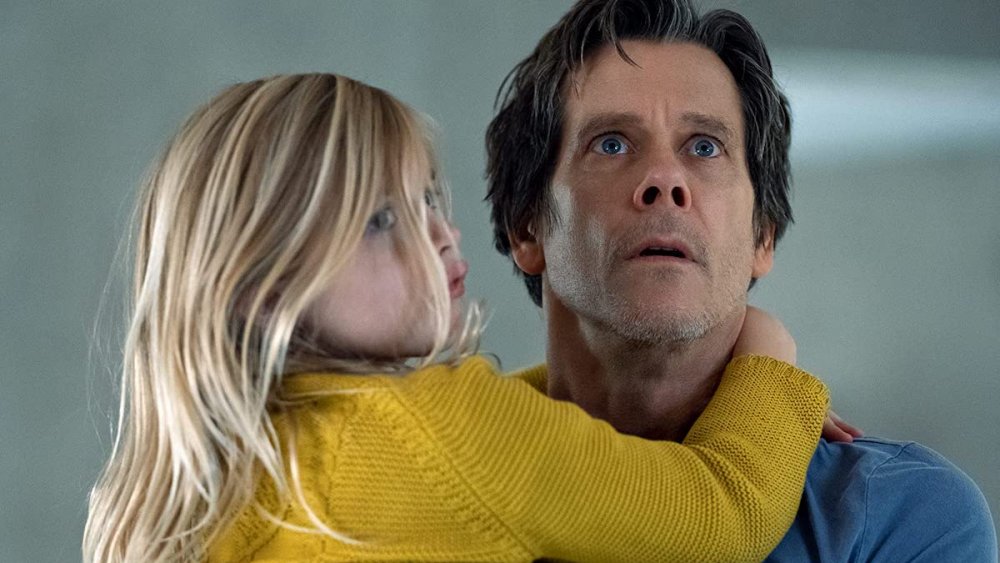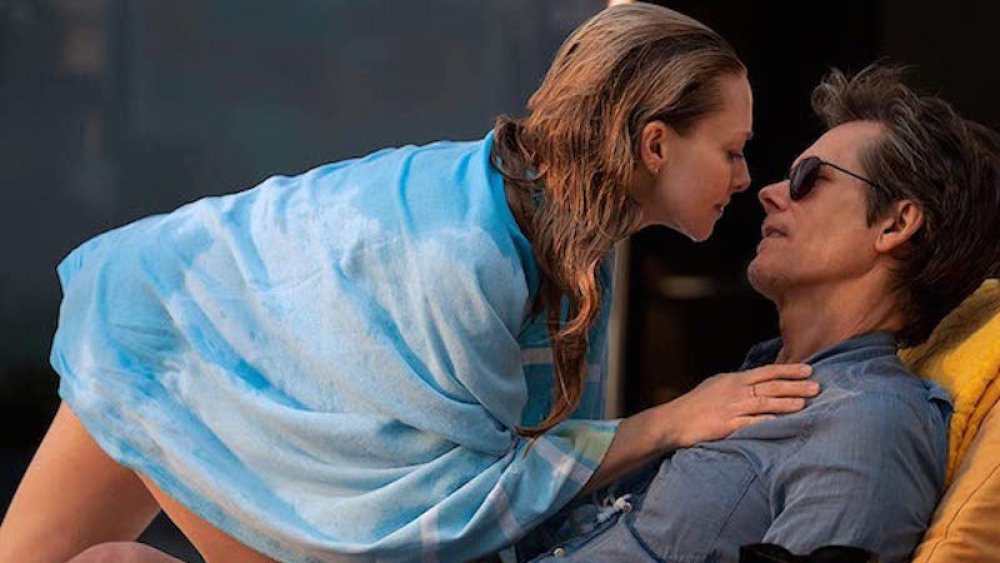The Ending Of You Should Have Left Explained
Contains spoilers for You Should Have Left
Blumhouse Productions has a new chiller waiting to disrupt your sleep cycles, and it's available everywhere on VOD.
You Should Have Left is exactly the kind of low-budget, disturbing film we've come to expect from Jason Blum's venerable horror production house. Written and directed by Jurassic Park scribe David Koepp, the film is essentially a psychological twist on the haunted house motif with a dearth of jump scares, but a bumper crop of slow-burning tension. Koepp's script is adapted from Daniel Kehlmann's popular novella of the same name, a work of prose with a clear creative debt to Shirley Jackson's genre-defining The Haunting of Hill House.
Kevin Bacon (The Following) stars as Theo Conroy, a disturbed man who harbors a toxic jealousy of his wife's success. He doesn't sleep well, and his sanity appears to be fraying. In an attempt to calm his mind, Theo and wife Susanna (Amanda Seyfried) take their daughter Ella (Avery Tiiu Essex) on a much-needed vacation to a remote rental house in rural Wales. As you can imagine based purely on the genre, this attempt to recuperate goes about as well as Jack Nicholson's writing retreat in The Shining.
Koepp takes more than a few liberties with his source material — mostly choices that actually make sense for the medium. Instead of including Kehlmann's dense backstory for the haunted Welsh abode, Koepp largely relies on visual misdirection to establish the strangeness of the house. This gives the entire film a disorienting feel, which complicates the resolution in the film's final moments.
If you're still scratching your head trying to figure out what went down with Theo and his family, here's a breakdown of that terrifying twist at the end.
Kevin Bacon cuts a deal with the devil in You Should Have Left
Koepp's adaptation puts a timely twist on Kehlmann's original ending. In the book, Theo is a struggling screenwriter, but movie-Theo is a wealthy and amoral banker — the virtual embodiment of white privilege. It turns out that much of the psychological distress he's experiencing in the film derives from his guilt over dodging prosecution for a serious financial crime, as well as another darker crime, which we'll get to in a minute. He pleads his own innocence to Susanna throughout the film, but his surreal experiences in the Welsh rental home suggest that his self-serving version of events may not be entirely true.
In the final sequence, Theo discovers evidence that Susanna cheated on him — thus validating all of his deepest insecurities. The evil house cooks up a disorienting labyrinth of dark rooms to keep Ella and Theo from escaping, ultimately separating father from daughter. As Theo desperately searches for Ella, he is confronted by a monstrous apparition. The corpse of his ex-wife pursues him through the house, and ultimately the devil himself emerges from the uncanny hellscape for a final confrontation. The devil demands that Theo confess the truth — not about his financial crime, but about his choice to let his first wife die of an overdose when he could have saved her. Yeah, it gets that dark.
Theo then makes a classic deal with the devil. He confesses to his crime and agrees to spend eternity trapped in the hell house in exchange for Ella and Susanna's freedom. Bet he's wishing he had taken the prison sentence from the Feds.
You Should Have Left is currently available for VOD on most popular streaming services.

